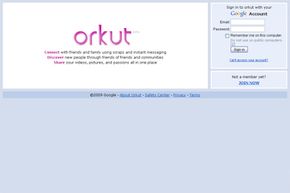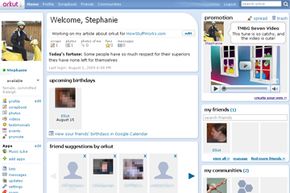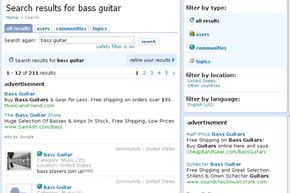As a user interface developer at Google, Orkut Buyukkokten, like other Google employees, was encouraged to use 20 percent of his time, or one day a week, to work on personal projects. Buyukkokten used that time developing a social networking Web site named orkut, which started mostly as an online community among Google employees. When Google took orkut public in 2004, it quickly became the hottest social network site in Brazil and India [sources: Nielsen, CyberMedia India Online].
Orkut is a free social networking Web site where you can create a profile, connect with friends, maintain an online scrapbook and use site features and applications to share your interests and meet others. Orkut users must agree that they're 18 or older to use the site. Orkut was invitation-only for most of its first five years, but now it's available without an invitation. All you need is a Google user account -- and you may already have one if you use other Google services, such as Gmail.
Advertisement
Orkut's public release followed rumors that Google was thinking about buying the social network site Friendster. With no formal commitment to support the site, Google labeled orkut as beta software. Google did make a commitment to site development, though, moving orkut development to Brazil in July 2008. More than any other country, Brazil has the highest level of social networking among its population, a fact that contributed to Google's decision to make Brazil the center of its Latin American operations [sources: Nielsen, Hendrickson].
Currently more than half of orkut users are ages 18-25, and almost half are from Brazil. The number of orkut users in India is almost equivalent to those in its original home in the United States [source: orkut]. In the United States, though, orkut does not rank among the top ten in social networking sites, where Facebook and MySpace are the clear front-runners [source: Nielsen]. Google has released domains specific to India (www.google.co.in) and Brazil (www.google.com.br) in response to its growth in those countries, and both sites include a link to orkut at the top of the main page.
Advertisement





